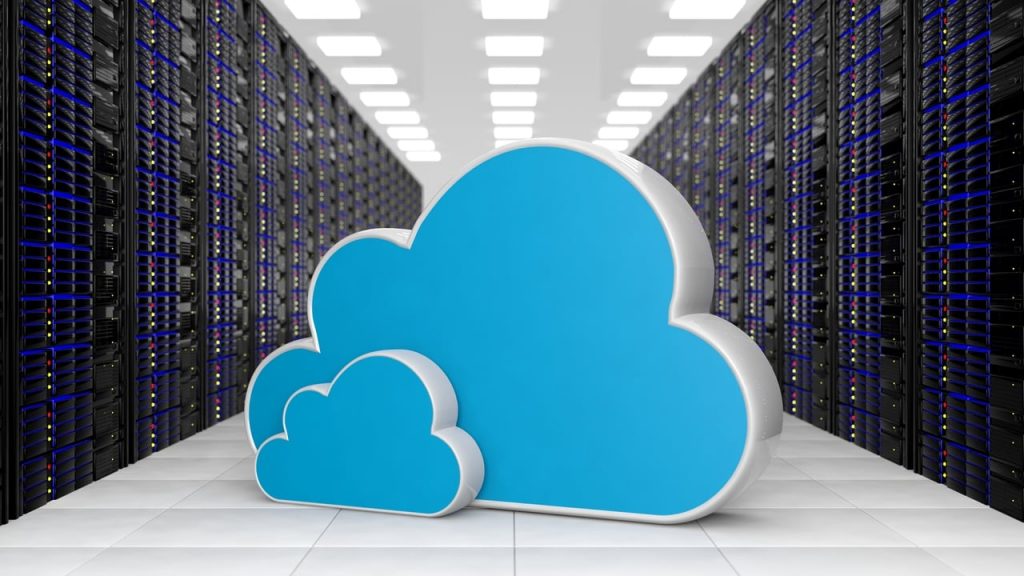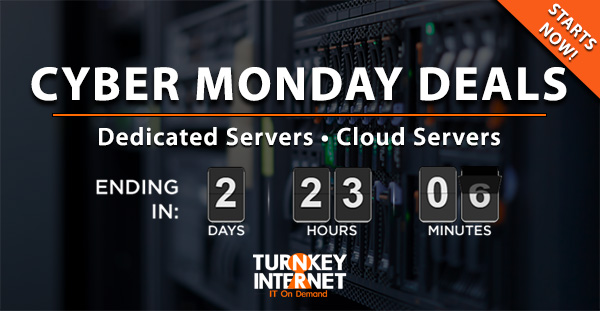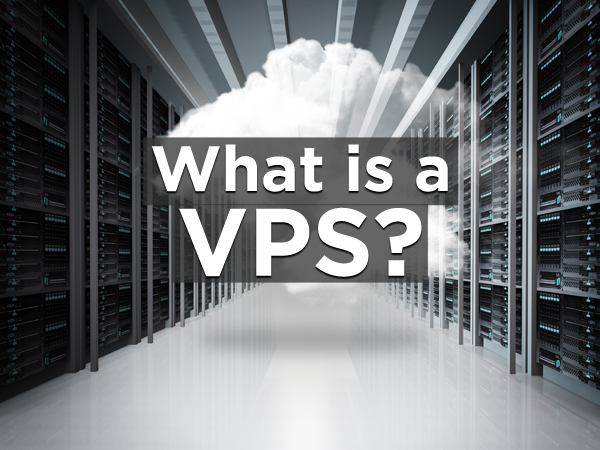Archive for the ‘vps’ tag
Top 8 Features of VPS Cloud Servers to Maximize Performance & Scalability of your Business no comments

As businesses continue to rely on technology for daily operations, the need for reliable and efficient servers has never been greater. Virtual Private Servers (VPS) offer a powerful solution for businesses looking to improve their online presence and streamline their operations.
Explore the benefits of VPS cloud servers and how they can help your business to maximize performance, scalability, and cost-effectiveness. From understanding the basics of VPS to exploring the latest advancements in cloud technology, the knowledge and resources you need to make the most of a VPS cloud server.
Whether you’re a small business owner or a tech-savvy professional, a VPS Cloud Server can help your businesses flourish.
What is VPS Cloud Server?
A Virtual Private Server (VPS) is a type of cloud hosting service that allows a user to rent a virtualized server in a data center. This server functions as a separate physical device but is hosted in a shared environment, providing the user with the benefits of a dedicated server at a lower cost. VPS cloud servers are ideal for businesses and individuals that require more resources and control than a shared hosting plan offers but do not want to invest in the cost of a dedicated server.
In terms of cloud hosting, VPS is considered a “bridge” between shared hosting and dedicated hosting, as it offers more resources than shared hosting but not as much as dedicated hosting.
VPS hosting is typically more expensive than shared hosting, but it is also more powerful and customizable. VPS servers are typically used by small to medium-sized businesses, as well as by individuals who need more control over their online presence.
How does a VPS Cloud Server work?
VPS cloud servers typically come with root access, allowing users to install and configure their software, and are fully customizable, meaning they can be tailored to meet specific business requirements.
VPS cloud servers offer high scalability, meaning that resources such as CPU, RAM and disk space can be increased as needed.
The virtualization technology used for VPS cloud servers is typically either OpenVZ or KVM, which provide different levels of isolation between virtualized environments.
VPS Cloud servers, specifically, are VPS servers that run on a cloud computing platform. This means that instead of being hosted on a physical server, the VPS is hosted on a virtualized environment that is spread across multiple servers. This allows for greater scalability and reliability, as the resources of the VPS can be easily increased or decreased as needed.
Cloud VPS hosting also offers many benefits like automatic backups, easy scalability, and self-healing. These benefits make cloud VPS hosting a popular choice for businesses that are looking for a more flexible and reliable hosting solution.
Considerations while selecting VPS Cloud Server
When selecting a VPS cloud server, it is important to consider the specific needs of a business or project. Factors such as memory, storage, and processing power should be taken into account when choosing a server size and configuration. It is important to choose a reputable and reliable cloud provider, as the uptime and security of servers will depend on the quality of their infrastructure.
VPS cloud server selection comes with many important considerations to keep in mind. The following are mentioned for you to know:
- Performance and scalability: The VPS cloud server should be able to handle the current and future needs of the application. This includes the ability to scale up or down as needed, as well as high performance and low latency.
- Security: The VPS cloud server should have robust security features, such as firewalls and intrusion detection systems, to protect against cyber-attacks and data breaches.
- Reliability: The VPS cloud server should be highly available and have a strong uptime record, to ensure an application is always accessible to users.
- Cost: The VPS cloud server should be cost-effective, with flexible pricing options that allow you to pay for only the resources you need.
- Support: The VPS cloud server provider should offer excellent customer support, including 24/7 availability and fast response times.
- Customization: The VPS cloud server should be customizable to meet the specific needs of the application, whether that includes specific software or configurations.
- Location: The location of the VPS cloud server is also important, as it can affect the speed and reliability of applications. It is best to select a location that is close to the majority of users.
- Compliance: If an application is subject to compliance regulations like HIPAA, PCI-DSS or SOC2, make sure the VPS cloud server provider can meet those requirements.
Now to protect all data running up on the VPS server you need to follow a backup plan too. Let’s read the importance, and types of a backup server.
Importance of Backing Up Both Host Node and Virtual Servers
When virtualizing servers, it’s important to keep in mind that you will need to back up both the host node and the virtual servers. The host node contains the system files that the virtualization software, such as VMware, needs to run. Virtual servers, on the other hand, contain user data that has been created within the virtualized environment. Without a backup of both the host node and the virtual servers, you risk losing important data in the event of a system failure.
Types of Backups for Virtualized Servers
There are several types of backups that can be used for virtualized servers. One option is to have local backups of both the host node and the virtual servers that can be easily restored in case of an emergency. Another option is to use a bare metal backup, which creates a replica of the entire system, including the host node and the virtual servers. Cloud backup solutions can also be used to protect virtualized servers.
Importance of Regular Testing a VPS Cloud Server
Regularly testing backups is crucial to ensure that they can be successfully restored in case of an emergency. This will give you the confidence that virtualized servers can be quickly and easily restored in the event of a system failure, minimizing downtime and data loss.
In conclusion, virtualization has many benefits, but it also brings its own set of challenges when it comes to backups and the selection of one. So do your research and choose wisely.
For more information on VPS Cloud Servers or to configure your own, visit turnkeyinternet.net/cloud-hosted-virtual-servers-vps/
Follow Us :Share :
Why Website Speed Matters no comments

If you’re in a store and ready to check out but you can’t find someone to help you, chances are you’ll stick around. You may even wait quite a while since you’ve gone through all the trouble of going to a store and selecting which items you want. However, if you’re waiting a long time for a website to respond, you can be on another site making the same selections within seconds.
For this reason, it’s essential that your website runs quickly and loads within mere seconds. People have a large selection of websites that they can get information from or do business with, and you need to be sure that your site is providing what people want very quickly. Additionally, it’s not just sites that sell items that need speedy load times. Sites that generate revenue from ads also need to load quickly to prevent the loss of income.
Importance of Website Performance and Speed
It is important to understand that today’s customer is always online. This means that if they want to access information online, they will do it through multiple devices. Speed is an integral part of the user experience. This blog details the top reasons why website speed is important and why it is essential to optimize website speed.
It Can Lower Your Conversion Rate
Studies show that people are steadily becoming less patient when it comes to waiting for web pages to load; 47 percent of people expect a website to load in two seconds or less. For mobile sites, you are given about three seconds before more than half of the visitors say they will leave. Even if you’re getting people to stick around, a slow load time can drop your conversion rate.
A study done by Amazon showed that just a 0.1 second slower load time resulted in a one percent decrease in sales. While Amazon is enormous and your website may not be able to generate that much traffic or sales, it shows that even tiny slowdowns can still have a tangible effect on your business. If slow load speeds are driving people away, then it’s driving your sales away.
Search Engine Ranking
If you run a business website, you’re probably at least familiar with the concept of search engine optimization, which involves signaling to search engines that people who are searching for particular terms or phrases would benefit from visiting your site. Google, and other search engines, include user experience as a metric when determining where your website will end up in search engine results.
User experience includes several things, including the quality of content on a site, if it’s easy to navigate and how quickly the website loads. Google doesn’t generally release specific information about how metrics are weighted, but a slow website can dramatically reduce your user experience score. With SEO being so competitive, the last thing you want is a slow website dragging your ranking down.
User Experience
One of the reasons that user experience is a part of many search engine ranking metrics is because people tend to not return to websites that worked poorly for them. Research done by Statista indicates that almost 80% of shoppers will abandon an online shopping cart if the website is too difficult to use.
Having a slow website can also make visitors do more than just wait. It can also keep certain parts of your site from working because scripts still need to load. Someone may fill out a form or attempt to add an item to a shopping cart and get an error or find that nothing is happening.
Additionally, when a website is slow, it may not load properly or things on the page may start adjusting themselves, changing the locations of images and text as people are trying to read or use the site. These types of frustrations can easily send someone away from your site with a commitment to never return.
The Need for Speed on Mobile
Mobile users can be even more impatient than people on desktops. With the number of individuals using mobile devices to both surf the web and make purchases, you mustn’t be driving away customers and visitors with a slow site. In addition to needing to create mobile and desktop versions of your site, you need to be sure that mobile versions load quickly and aren’t just designed to fit on a smaller screen.
People on mobile devices often have data caps, and although powerful, smartphones have far less processing power than computers. Images need to be shrunk in terms of both pixels and file sizes, and scripts need to be kept down to the minimum required for the site to function. Along with rating user experience for desktop websites, Google also measures user experience for mobile sites. Furthermore, in the last year, they’ve started ranking mobile-friendly sites higher when people do searches on a mobile device.
Loss of Ad Revenue
Depending on the ad network that your website is hosting advertising from, you may only get credit for ad views if the ad loads properly if the visitor to the page has the ad show up on their screen, or both. If your website is very slow, ads may not be loading properly, depriving you of revenue. Google found that 25 percent of mobile sites with load times under five seconds had higher ad revenue.
Resolving Your Speed Problems
Whether you have a slow site or would just like your site to run faster than it already is, one of the first things you should look at is cutting down on scripts and reducing the size of image and media files. Scripts can slow down even a bare-bones site because they use a server’s bandwidth, processing power from the server, and processing power from the computer they are being loaded on. Unless your site – and the page that someone is on – needs a script or function to run, consider ditching it.
Media files can also dramatically increase the amount of time that it takes for a site to load. Instead of eliminating image files, see if you can’t compress them or use another file type that results in a smaller image. A small loss in image quality can cut an image’s file size in half.
Another consideration is the server or hosting provider you’re using. You may need more bandwidth or processing power, and if you’re using shared hosting, it may be time to upgrade to a VPS or Dedicated Server solution.
Speed matters. It affects your user experience; it affects your search ranking. It affects your sales and conversions. Follow Us : ![]()
![]()
![]()
![]()
![]()
Share : ![]()
![]()
![]()
![]()
![]()
Moving your Business to the Cloud – Why it Makes Sense no comments
Today’s fast-paced and competitive business market demands that you keep up with the latest technology if you want to outperform your rivals. One of the greatest challenges with running a business today centers on storing your business’s information securely and efficiently. Rather than get bogged down with costly, time-consuming, and outdated IT infrastructures, you can increase your profits, expand your brand, keep your information secure, and outpace your business competitors by moving your small business to the cloud today.
Serving Your Customers Better
Time is money when it comes to serving your customers. When your IT infrastructure goes down, you are unable to help your clients and thus end up losing money that your business needs to survive and grow. You could even lose sales and profits to your competitors.
Because it is not prone to costly, time-consuming outages, the cloud proves to be the better, more affordable option for your business. You avoid losing time and money and your business can grow and profit at a pace that is not available with outdated database technology.
Growing Your Corporate Brand
Onsite or in-office data centers only allow your business to grow and expand so far in the market. When you want your company to go beyond your current limitations, you can go just about anywhere when you move your business to the cloud.
With its mobility, easy access, and user-friendly design, the cloud does not limit you to a physical location or within a specific boundary in the local market. You can access your company’s information from any location as well as send out projects to your employees regardless of where they are when you move your company’s operations to the cloud. This mobility puts you on target to reaching more customers and getting your business’s brand before an even larger audience.
Staying Up with the Latest Trend
You are not alone in your decision to move your business to the cloud. In fact, you will find yourself in great company as more business owners likewise decide to take advantage of this technology.
The latest studies show that more companies of all sizes are deciding to switch to cloud technology and away from outdated, costly, and time-consuming IT databases. By the end of 2020, close to 80 percent of all businesses worldwide will have made use of cloud technology. Why be one of the last ones to take advantage of the newest and most innovative technology when you can make the switch today to the cloud? By moving your business to the cloud, you stay on top of your competition and make available technology that will let you serve your customers better and increase your profits to even higher levels.
Running a business of any size today requires that you make use of today’s most innovative and affordable technology. Whether it’s to improve performance or Disaster Recovery planning, utilizing cloud-based servers and backup solutions is essential. When you want to expand your brand without putting a lot of money into a restrictive and outdated IT infrastructure, you can stay at the top of your competitive game by moving your company to the cloud today.
Follow Us :Share :
Cloud VPS: 4 Reasons to Upgrade no comments
If you are in the market for business web hosting, you probably already know how many options are out there. While large, established businesses may need a dedicated server to meet their needs, most small to medium-sized businesses may find that a Cloud Hosted VPS or virtual private server is the best match. A Cloud VPS is a sub-section of a dedicated server. It’s a guaranteed amount of space that is completely isolated from the rest of the server. This means you get a private, guaranteed portion of a server without the risks of shared hosting (in which potentially hundreds of people are using the same machine) and without the expense of a dedicated server. Lets discuss the various reasons why Cloud VPS technology is a good choice for your business.
1. Potential for Growth
When you’re shopping for a cloud or hosting solution for your business, it is essential that you consider your business’ potential for growth. You don’t want to buy server space, get your website up and running and start selling only to exceed your server’s capacity. If that happens your site goes down. If your site goes down, you lose money! A Cloud VPS offers the instant capability of allocating a large amount of space and resources so your business can grow unfettered.
2. Support
Good VPS Hosting comes with robust support. This means you always have a resource if you run into problems. If your site goes down, you have a real person to call. Make sure your VPS Host or Cloud provider has online chat support, a phone number and a ticketing system (TurnKey has all three). There are many hosts out there that do not offer 24x7x365 support. Often these hosts don’t own their hardware and are not always reliable. Do some research before choosing a host to make sure you will get the kind of customer service your business deserves.
3. Security
Cloud VPS hosting offers unique IP addresses alongside password protection, firewalls and security software managed by your hosting company (if you choose the right host). This means your data is secure, regularly backed-up and protected from potential attacks. A Cloud VPS is an excellent choice if you are concerned about data security.
4. Value
If you are concerned about controlling business expenses (and who isn’t!?) a Cloud VPS is an extremely economical choice. You get nearly all of the benefits of a dedicated machine without the large monthly bill. Of course, if your business grows quickly and you find you need more resources, you can easily upgrade from a Cloud VPS at that time.
Our TurnKey Cloud-Hosted Virtual Servers (VPS) offer the highest level of service and the ultimate combination of performance, value, security and ease of use for your hosting needs. Our VPS’s are far more flexible than other hosting options giving your organization full control over the security settings, choice of operating system, control panels, software configuration, and applications. For more information, visit turnkeyinternet.net/cloud-hosted-virtual-servers-vps
Need even more SPEED? Check out TurnKey’s Pro Series Cloud VPS featuring UnMetered 10Gbps Bandwidth! Click Here to learn more.
Follow Us :
Share :
Moving Your Business to The Cloud – Which Solution is Best? no comments

Businesses are moving their IT infrastructure to the Cloud every day – phone systems, virtual desktops, office servers, and lots more. But when your business is making that transition to The Cloud, why are there there so many options that look the same but with different names like “Cloud Servers”, “Virtual Servers”, “Dedicated Servers”? Which is the best solution for your business – and what is the difference?
First, lets define “The Cloud.” The cloud is a scalable, reliable and cost-effective way of accessing information technology at any time from anywhere. The technology of the cloud revolves around the benefits of moving expensive and complicated IT out of your office into an efficient, scalable, and secure data center. So if you are looking to move your office server into “The Cloud”, you are essentially looking to host the office server in a datacenter, and use the Internet to connect to it from any where, any time.
Virtual Servers
A Virtual Server (also called a Virtual Private Server, or VPS) is the term used for the server and software that runs on the same physical server as other virtual servers and is functionally equivalent to a separate physical computer dedicated to the individual customer’s needs. A single high capacity server in a datacenter can host 10 or more Virtual Private Servers – such that each client has their own privacy, computer resources, customizable operating system and software. The virtual server model is a more power and cost efficient method and provides an easier to manage and generally more reliable computer server infrastructure than say hosting the same application on a typical server in your office.
A VPS will be your lowest cost – easiest to use, option in most cases. If you need a lot of computing power, or resources (disk, network bandwidth, etc) – your costs can go double or more very quickly. The down side is your VPS resides on a ‘shared’ resource (that dedicated server that is split up between 10 or more other VPS clients). So there can be times when you have trouble getting all the performance you may need, and scalability is limited (you may be able to increase ram or bandwidth double or more from your initial machine, but costs shoot up quickly as you do so). But the VPS is easy to manage, you don’t have to worry about hardware generally since the server that your VPS is housed on will typically be a very high end server with built in redundancy. But it is still a single point of failure, which can have several hours of down time should your provider have to do maintenance.
Dedicated Servers
A dedicated server has all the same benefits of the Virtual Server for privacy, and custom software, but costs more since you have all the resources dedicated to just you (even when the system is idle, its using up electricity, so your costs and efficiency aren’t as optimal compared to a virtual server). But the dedicated server does offer a high level of performance, and for a busy application (say a phone system that connects 500 employees across 3 regions of the country) you will find the dedicated server is your best value when you need the maximum level of computing power.
A dedicated server will actually be your best performer, and best value if you have a highly demanding application that needs a lot of computing power. You can have access to 24 or more CPU processing cores, and 256GB+ of RAM if your budget allows – and it’s a lot cheaper than getting the same computing power versus a Cloud based Server. The downside is the single point of failure, and additional administrative efforts needed to maintain a dedicated server. Make sure you selected a dedicated server from your provider that includes management, backups, and guaranteed response times if something goes wrong.
Cloud Servers
A Cloud Server (Cloud hosted solution) – is going to give you best of all worlds – but at a price. You get the simplicity of a virtual machine to administer it. You get the ability to scale to very high capacity (even speeds faster than your average dedicated server), and you can even replicate to multiple servers and utilize load balancing for literally infinite scalability. The built in redundancy offers protection from single point of failure on hardware (since a cloud based server if the hardware fails, should auto restart on another node within a few seconds, picking up right where it left off) – but all this does come at a higher price. Typically 2x to 4x the cost of a traditional VPS, and if you need a lot of computer power, disk space, or bandwidth you really are going to pay a lot more for the privilege to have that level of redundancy and ability to scale on demand
So what works best for your business? Give us a call an we will help you choose the best one. At the end of the day, all 3 get you ‘in the cloud’. Follow Us : ![]()
![]()
![]()
![]()
![]()
Share : ![]()
![]()
![]()
![]()
![]()
Effective Security Measures For Your Server no comments
If you run a server, especially for your business or organization, security should be a top priority. Whether the server exists to host files for a website or is networking computers for an office, it needs to be protected from malicious software, exploits and hackers. Failing to secure a server can lead to lost or corrupted data, damage to devices connected to the network and unauthorized individuals getting access to sensitive data. Below are various security measures that you can employ on your server that are extremely effective.
Review & Modify Default Settings
Programs running on your server, such as control panels (cPanel, Plesk), CMS (WordPress, Joomla, etc.) and even the operating system, contain various default settings that need to be reviewed and if necessary modified. They include everything from preset usernames and passwords for admin access to default connection ports. Anything that is left as set up by the software manufacturer may be used as a way to gain easier access to a system. Even leaving the URL for admin access to a server or programs on the server can make it easier for hackers to get in. There are hacking tools that specifically scan websites and servers for default URLs and folders, so changing default login locations is important. On this same basis, it’s a good idea to make sure that directories are protected so that people cannot see their contents.
Active Monitoring
A critical requirement to properly managing a server is knowing what is happening with it at all times. Even the best security software cannot prevent all intrusions, and hackers are constantly figuring out new ways to exploit and circumvent security systems. Therefore, it’s important that activity on a server is always being monitored. Things that normally indicate a problem include incredibly high data transfer or processing power use as well as multiple failed login attempts. Brute force hacking involves trying to login to a system over and over again with different login and password combinations. In addition to draining system resources, it can also eventually allow a hacker to find a combination that lets them into your system. Real-time monitoring can help detect these issues and alert the appropriate people, and it can also shut down brute force login attempts.
Passwords & Permissions
Another important server security measure is to ensure that all passwords, especially the root and/or Admin passwords, are complex and that people are only given access to areas that they need to do their job. Aside from malice, giving an intern administrative access to databases could lead to major problems through simple error. It’s also recommended to change your passwords on a regular basis, even if they are robust.
There are a number of ways to tackle the issue of making sure passwords are complex enough, including using computer generated passwords or using passphrases. Computer generated passwords normally require certain characters, length and require a combination of upper and lower case letters; passphrases are combinations of words, and they tend to be easier to remember and more secure than passwords. There should also be a set time that passwords expire, which will require users on the network to change them on a regular basis.
Along with ensuring that people are only given access to parts of a server that they need to have, it’s important that permissions are updated when people leave a job or move to a different part of the company. This can be done with proper database management and doing occasional audits to ensure that access levels are appropriate.
Updates
One way that hackers get into many servers is by going through weak points that developers did not notice when creating an application or an operating system. This is why both computers and mobile devices need regular updates. Along with offering new options, updates close off back doors and holes in the security of software. Therefore, it’s important that all software hosted on your server is kept up to date. For web hosting servers, that means content management systems (CMS) such as WordPress, and the plug-ins the CMS uses must be kept current. Many operating systems and software applications can be set up to update automatically, but if you’re not comfortable with that, it’s important that you have some way of being notified when important changes are available.
For those of you who feel there’s just not enough time in your day to employ these server security measures, or if you just prefer someone else does it for you, at TurnKey Internet we got your back. We offer Fully Managed solutions, such as our Best cPanel Dedicated Server, that include Server Hardening. We’ll take care of securing and protecting your server so you can focus on running your business. For more information, visit https://turnkeyinternet.net/managed/
How Website Speed Affects Your Business no comments
If you’ve ever waited for a slow website to load, you know how frustrating it is. It only takes a few seconds – if that – for you to start getting impatient and considering going to another site.
Visitors to your site feel the exact same way. People have grown increasingly accustomed to instant results, and most web users expect web pages to show up on their screen right after clicking or tapping. A slow website can directly, and negatively, impact your sales and ability to draw in new clients.
However, it’s not just sales that take a hit when your website is crawling. Slow load times can result in reduced search engine rankings and depressed conversion rates. Additionally, a slow website is often the sign of a design problem, which may mean that you’re using more bandwidth to do less.
The Five Second Rule
According to a recent study, one-third of online shoppers will leave your site if it takes more than five seconds to load. Along with the fact that five seconds is a very short amount of time to work with, the study found that people are getting more impatient; a previous study showed that you had six seconds before people left.
If that weren’t bad enough, a study done by Google that specifically looked at mobile users found that these individuals are even more impatient. More than half of those involved in the study will leave a mobile website if it doesn’t load in three seconds.
What this means is that your website design needs to focus on speed instead of design elements. To ensure that people will go to your website – and stay – your site needs to be fast and streamlined.
Load Time Affects Sales
If you’ve got your website loading under five seconds, you may get visitors to stick around, but it won’t necessarily net you a sale. The study that found many people will leave after five seconds also determined that a 2.4 second load time led to the highest conversion rates. This is backed up by data collected by Kissmetrics, which showed that a one second delay in website response time can lead to a seven percent conversion rate drop.
The collected data also showed that people who made purchases from a site but were unhappy with the site’s performance were less likely to buy from the site again. In other words, the bare minimum to get someone to stay may be five seconds, but if you want to make a sale, and keep making sales, your site may need to load even faster.
Google Is Impatient Too
Load times don’t just affect whether or not a potential customer stays on your website. They may also play a part in determining if someone ever arrives at your site. This is because Google looks at user experience when calculating search engine rankings.
There are a number of factors that go into user experience, but load time is a significant one. Search engine ranking is very competitive since it determines where your site shows up in search results and if it shows up on the first page. With less than 80 percent of people clicking to the second page of search results, it’s essential that you’re doing everything you can to be on page one.
Google offers a website to check your site’s performance, and according to the search engine, a score of 85 or higher out of 100 means that your site is doing well. Anything below that likely spells trouble when it comes to your search engine rankings.
It’s also important to note that Google has started to give websites that are mobile friendly higher rankings when people do a search from a mobile device. If you have a desktop site that loads quickly but don’t create an equivalent mobile site, you could see a drop in your mobile search rankings.
Slow Load Times Could Mean Back End Problems
There are a variety of reasons that your website may be running slowly or simply not loading as quickly as visitors would like. Many common reasons relate to design, such as running too many scripts or filling up the page with large media files.
These problems can be resolved easily by streamlining a website and cutting down on files and scripts that bog the loading process down. Doing this may help to improve the performance of your web server as well. If the media files on your site that are taking up enormous amounts of bandwidth are compressed or if you reduce the number that load on your site, you could see a lot of resources freed up.
It May Be Time To Upgrade
However, slow load times, especially if you have optimized your website, may indicate that there’s a larger problem with your server or the network you’re running on. If you are hosting on a Shared Server, it could be that you need more power and system resources. To resolve this, it is recommended that you upgrade to a VPS/Cloud Server or Dedicated Server solution. If your business is utilizing a Colocation solution but still experiencing bandwidth and network issues, it may be time to change your Data Center and/or Cloud provider.
While attractive and innovative website designs may be appealing, if you’re in the business of selling, your focus should be on a website that loads quickly and is easy to navigate. Shaving just a second off of the load time of your site and pages within it could mean a dramatic difference in conversion rates and sales, and it could also improve your search engine rankings.
Cyber Monday Deals: Up to 90% off Web Hosting no comments
Cyber Monday Cloud Hosting and Datacenter Deals are here! Up to 95% off for life! Hurry now, before these discount offers are gone forever! View all deals at turnkeyinternet.net/cybermonday
Up to 95% off Dedicated Servers • Up to 75% off VPS Cloud Servers • Up to 90% cPanel Web Hosting
At TurnKey Internet, we offer hosting solutions that leverage our enterprise-class infrastructure and award-winning staff to take care of your online business needs.
We provide the servers, the network, the data center, and the expert staff to manage your services to ensure that you can focus on what you do best – running your business.
With Cyber Monday deals as big as 95% off for life, now is the best time to try our Cloud Services, Virtual Servers, Dedicated Servers, Web Hosting, Colocation, and more! Follow Us : ![]()
![]()
![]()
![]()
![]()
Share : ![]()
![]()
![]()
![]()
![]()
*BLACK FRIDAY DEALS* Dedicated Servers & Cloud Servers no comments
|
|
|
|
Web Hosting 101: What is a VPS? 1 comment
Businesses are faced with a wide variety of choices and options when it comes to finding a hosting solution for their website, company email and data. One option is shared hosting, in which a single server’s resources are shared by a number of different websites and users. However, if you’re a business looking for more power, control, and flexibility, the solution for you may be a VPS or Virtual Private Server. A VPS offers the ultimate combination of performance, value, security and are far more flexible than other hosting options, giving your organization full control over the security settings, choice of operating system, control panels, software configuration, and applications.
Let’s take a look at some specific advantages of choosing a VPS:
Guaranteed Resources
When using a VPS, your server is provisioned with a specified amount of performance resources that is exclusive and guaranteed to you and no one else. Not only will this give your business more room to work with and expand, it will also prevent issues with your site caused by other websites. For example, if you’re site is hosted on a shared server where there is another website that is being attacked or hogging up resources, this can affect the performance of your own company’s website.
Customized Performance & Software
A VPS allows your business to customize performance and software based on your company’s unique needs. Things like CPU Cores, Memory, and Hard Drive space can all be customized and upgraded on a VPS. With shared hosting, you are limited to the software already installed on the server, and sometimes it may lack a requirement or feature your business needs. But with a VPS, you have full flexibility over which software the server runs, even down to the Operating System.
Administrative Access
One downside of shared hosting solution is the lack of Administrative or root access. This limitation affects what software you can install as well as the settings and options that you can configure. This can greatly impact the potential of what you are able to do with your website. However with a VPS, you do have root/admin access to your virtual server. This advantage will also provide you with the ability to better monitor and troubleshoot your website because you’ll have full access to your virtual server’s logs.
Dedicated IP Address
Each VPS comes with its own dedicated IP address. With shared hosting, your site may be sharing an IP address with multiple websites. If your website happens to share an IP with a site that spams or contains malware, this can cause multiple problems. Your website can end up getting blocked, your email rejected as spam, even your search results can be affected. Another thing to consider is whether or not you’ll be running e-commerce software or selling things on your site. If so, you will need to have an SSL for your site, which in turn requires a unique dedicated IP.
Now if you’re worried that you’re not tech savvy enough to run your own VPS, consider the option of going with a Managed VPS solution, which will provide many additional benefits on top of what’s listed above. There are countless other advantages to using a VPS, however the 4 above are some of the most notable. So before you decide to host your website on a shared server, consider the added flexibility, reliability, and performance that a VPS can provide.
Backed with bulletproof reliability, TurnKey Internet’s virtual private servers offer the perfect balance of value, performance, and ease-of-use. All VPS packages include 100% network up-time, 24/7 support, and a 30-day money-back guarantee! Turnkey Internet offers a full suite of managed hosting services such as server back-ups, hands-on system administration, intrusion detection protection, and advanced firewall protection services. Select from Linux or Windows operating systems. Choose control panel software from cPanel, Plesk and DirectAdmin. For more information, visit www.turnkeyinternet.net














